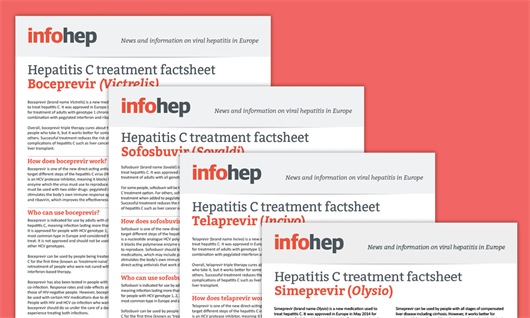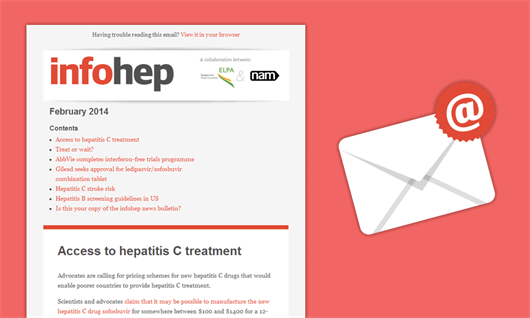The European Commission has granted marketing approval to a new interferon-free combination for treatment of hepatitis C virus (HCV), developed by AbbVie. The combination consists of a fixed-dose tablet containing the HCV protease inhibitor paritaprevir boosted by ritonavir and the NS5A inhibitor ombitasvir, dosed once daily (to be marketed as Viekirax), accompanied by the NS5B non-nucleoside polymerase inhibitor dasabuvir, dosed twice daily (to be marketed as Exviera).
In the European Union, Viekirax and Exviera have been licensed for treatment of genotype 1 infection, with or without ribavirin, and for treatment of genotype 4 in combination with ribavirin. The regimen has also been approved for treatment of hepatitis C in people with HIV co-infection. The regimen is taken for 12 weeks in all patients apart from those with genotype 1a infection who have cirrhosis, who should take the regimen for 24 weeks. The combination may be dosed with or without ribavirin.
In clinical trials the regimen has produced very high cure rates (above 95%) in all groups of patients with hepatitis C; 92% of patients with hepatitis C and HIV co-infection were cured in a clinical trial.
In the United States (US), the three drugs will be co-packaged and marketed under the brand name Viekira Pak. The US Food and Drug Administration approved the combination for treatment of genotype 1 infection in December 2014. The US label recommends administration with ribavirin in all patients with genotype 1a infection who have cirrhosis. AbbVie has announced a US list price of $83,319 for a 12-week treatment course, approximately 10% lower than the price of Harvoni (sofosbuvir/ledipasvir), marketed by Gilead. European prices have not been announced yet.
Gilead’s interferon-free combination of sofosbuvir/ledipasvir (Harvoni) received US approval in October 2014 and European Union marketing approval in November 2014.
In the case of both drugs, national availability will depend on the result of reimbursement negotiations.






Connect with infohep on Facebook: Keep up to date with all the latest news and developments.
Follow infohep on Twitter for links to news stories and updates from infohep.org. Follow us at www.twitter.com/infohep.
Follow all the infohep news by subscribing to our RSS feeds.